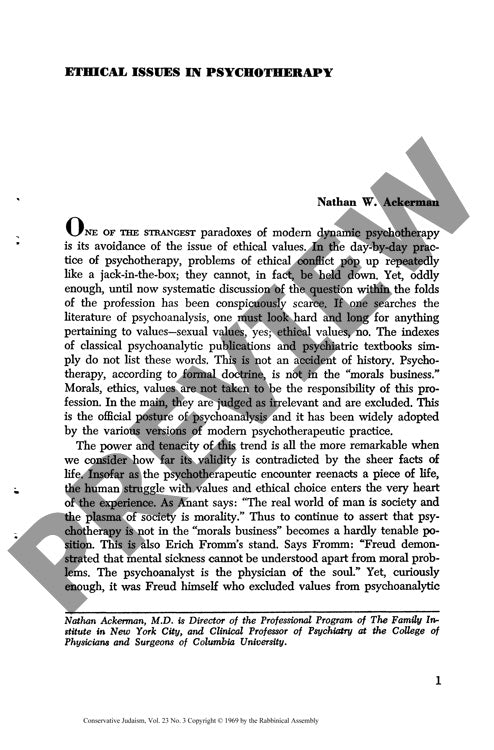Ethical Issues in Psychotherapy
Couldn't load pickup availability
A paradox lies at the heart of modern psychotherapy: while formally claiming to avoid moral judgments, therapists regularly confront profound ethical conflicts in their work. Through theoretical analysis and clinical cases, Ackerman challenges the Freudian doctrine of strict neutrality on moral issues - a tradition established to preserve therapeutic objectivity and shield patients from oppressive superego influences. Clinical vignettes reveal how rigidly excluding ethical concerns can enable family breakdown and sociopathic behaviors rather than promote healing. Eight key areas of value conflict emerge consistently in therapeutic practice: secrecy versus openness, guilt responses, aggression, sexuality and tenderness, fantasy versus reality, competition versus cooperation, individual isolation versus community connection, and authentic versus pathogenic values. The analysis identifies five theoretical models of psychotherapy—biological, psychosocial, societal, spiritual-philosophic, and familial-transactional—each offering distinct approaches to ethical challenges. As psychotherapy expands beyond individual symptom relief to address broader interpersonal relationships and social functioning, confronting ethical values becomes unavoidable. Contemporary social changes necessitate abandoning the classical taboo against ethical engagement, advocating instead for shared exploration of value conflicts within the therapeutic process while maintaining professional integrity.

More Information
-
Physical Description
-
Publication Information
Published 1969
ISBN
-
Publication Credits
Nathan Ackerman

